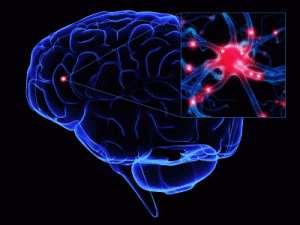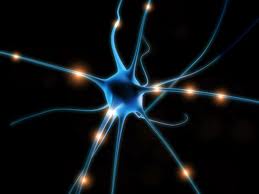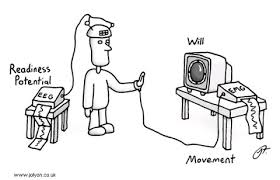You are NOT Your Brain
Do you sometimes feel that your brain has been snatched away by
repetitive destructive thoughts, feelings and sensations?
Such as:
- I’m not good enough
- I should have / I shouldn’t have
- There’s something wrong with me.
- I have no control
- No one likes me / I am unlovable / I will be alone
- All of my worth is in taking care of others.
- I don’ t deserve to be happy – I deserve to suffer or be punished
Uncomfortable Sensations
 Butterflies
Butterflies- Tightness or pounding in the chest
- Excessive anger
- Heat in the chest, arms, or face
- Sadness / depression
- Fatigue
- Feeling helpless / hopeless
Followed by these Habitual Responses:
- Using drugs or alcohol
- Shopping / spending money I do not have
- Wasting time on things I do not need to
- Fighting / arguing
- Compulsive sex
- Excessive eating, dieting, or purging
- Avoiding people, places, events
- Smoking
- Repeatedly checking something (email, text, facts, information)
- Overthinking or over-analyzing situations, events, problems
Brain Takeover
Nothing is more confusing or painful than when your brain takes over your thoughts, attacks your self-worth, questions your abilities, overpowers you with cravings, or attempts to dictate your actions.
Dr. Jeffery M Schwartz opens his book “You Are Not Your Brain” with this statement.
This brain-takeover or brain snatching is by believing what Dr. Schwartz calls “deceptive brain messages.” He defines them as :
“Any false or inaccurate thought or any unhelpful or distracting impulse, urge, or desire that takes you away from your true goals and intentions in life.”
Your life is snatched because following these deceptive brain messages results in repeated habitual actions that make you miss the good things in life. These habitual actions are not conscious until you start to pay attention to these brain messages and see that they are deceptive. Then there is the possibility of making another choice not based on fear, anxiety, uncomfortable sensations, or any other deceptive brain message.
And that is the whole point of showing you that “You are not your brain.”
What is the toll?
Deceptive brain messages leading to habits which try to relieve the feeling:
- Suck up time
- Take over our lives
- Are exhausting
- Cause lost time and lost opportunities
- Restrict life and activities
- Cause us to avoid people, places, events we enjoy
- Cause discord in relationships
- Make us miss out on important relationships
- Obscure reality leading to the belief that the negative messages are true
- Keep us from following the path of the true self
- Keep us trapped and serving others
- Cause us to indulge cravings / urges / desires that lead to unhealthy habits
Whew! That does not sound like a happy life!
What is really going on here?
 We tend to follow habitual actions to relieve us of the uncomfortable sensations produced by the deceptive brain messages. The problem is that the relief is temporary and not usually complete, and the cycle starts all over again. What is worse is that each time we pass through this cycle, we reinforce it.
We tend to follow habitual actions to relieve us of the uncomfortable sensations produced by the deceptive brain messages. The problem is that the relief is temporary and not usually complete, and the cycle starts all over again. What is worse is that each time we pass through this cycle, we reinforce it.
Thought, urge, desire (deceptive brain message) –>
uncomfortable physical or emotional sensations –>
habitual unhealthy responses (see list above) –>
distress momentarily relieved –>
thought, urge, desire (cycle starts over again)
Is there a biological explanation to what is observed?
Deceptive brain message =
- Frontal cortex (part of the brain involved in strategy, organization, detecting errors) +
- Hypothalamus (part of the brain involved in hunger, thirst, sex, and other basic bodily) +
- Nucules acumbens (reward center) –>
Uncomfortable physical sensations =
- amygdala: fear (part of the brain responsible for generating feelings of fear and physical sensations, such as rapid heartbeat, shortness of breath, and sweating. Also assesses threats and sends signals that indicate that “this is something to fear / avoid” or “this is safe”) +
- insula: gut-level responses (responsible for generating “gut-level responses” such as dread or pit in my stomach gut-wrenching pain and similar) +
- anterior cingulate: something is wrong (rapid sense that something is wrong, involved in detecting errors and assessing risks and rewards) –>
Unhealthy habitual behavior =
- basal ganglia: automatic thoughts and actions – your habits, both physical and mental –>
distress relieved / unhealthy circuit strengthened
Why can’t I change my habits?
Part of the reason we indulge these unhealthy habits is that we have believed the deceptive brain messages and assimilated them into our sense of who we are. And this has a biological basis, like the cycle reinforcement has a biological basis.
The frontal cortex, the part of the brain involved in planning, strategy, organization, detecting errors and making assessments also is involved with thinking about ourselves. It can focus on information about what is me and what is not me. It can act in helpful or unhelpful ways.
The brain wiring of this center is strongly tied to the amygdala, insula, and anterior cingulate, the parts that assesses threats and creates uncomfortable responses. When it is too tightly bound to the frontal cortex, there is a sensation and belief in the deceptive brain messages and it is difficult to see any outside perspective which may contradict that (but be the truth.)
But it feels so real, it must be me!
By not incorporating other relevant information, other explanations, or conclude that a situation does not have to do with me, the sensation is that the brain messages are “who I am.” And that is limiting.
These deceptive brain messages are mostly due to the ways we learn to adapt and absorb information, especially in our formative years. It can be a combination of heredity and environment and who knows what else, especially in childhood.
Conscious Free Will (or Won’t)
It is not possible to control the deceptive brain messages from arising. However, it is possible to be aware of them and choose not to act in a way which is the habitual destructive one.
Neuroscientist Benjamin Libet studied conscious free will in individuals and found:
- Freely voluntary acts are preceded by a specific electrical change in the brain (the ‘readiness potential’, RP) that begins 550 ms before the act.
- Human subjects became aware of intention to act 350–400 ms after RP starts, but 200 ms. before the motor act. The volitional process is therefore initiated unconsciously.
- But the conscious function could still control the outcome; it can veto the act.
- Free will is therefore not excluded. These findings put constraints on views of how free will may operate; it would not initiate a voluntary act but it could control performance of the act.
What he is saying is that our brains will initiate an intention to act on a thought or feeling and it will come to our awareness. At that point, we can decide to keep it in our awareness or not and act on it or not. By not giving it attention, we stop the desire to perform the action, even though it has arisen. Our mind, or conscious awareness gives us the power to choose.
It is a matter of pattern interrupt.
You Cannot Change what you Cannot See
 So we see that the first step is being aware of what brain messages are being generated before the habit kicks in. In those milliseconds after the thought, feeling, or impulse arises we have a choice.
So we see that the first step is being aware of what brain messages are being generated before the habit kicks in. In those milliseconds after the thought, feeling, or impulse arises we have a choice.
In order to sharpen our awareness before acting or avoiding to do something, consider asking:
- Is this action I am about to do helping or hurting me?
- Is it aligned with my true goals and values?
- Am I avoiding something right now?
- Am I about to go do something based on craving?
- What is motivating me to do this?
- Why am I about to do this?
That gives a few seconds breathing room to interrupt the pattern and discover what we really want.
It’s Not Me, It’s My Brain
Now, to own that it is not me, we can re-frame these things that keep bothering us. We can dismiss the faulty logic or strong pull to act on these sensations. We must learn that these sensations will pass without the habitual action that temporarily pacified us before.
Here are some common errors in thinking to watch for:
- All-or-nothing (black or white)
- Catastrophizing (worst case scenario)
- Discounting the postitive: minimizing, ignoring, devaluing positive qualities
- Emotional reasoning: don’t believe everything you think or feel
- Mind reading: assuming you know what the other person is thinking, feeling, or believes based on your behavior, how you are interpreting the other person’s gestures, language, or behavior
- Should statements: false expectations of how things should be, not how they are: anticipation of a specific result to negatively affect you
- Faulty comparisons: believing that somehow your current situation is worse than someone else’s or how you imagined it would be
Focus on What We Want in the Moment
 The awareness will focus on what has arisen unless we change that focus. Therefore, we can direct our attention toward an activity or mental process that is productive – even while the false and deceptive urges, thoughts, impulse, and sensations are still present and bothering us.
The awareness will focus on what has arisen unless we change that focus. Therefore, we can direct our attention toward an activity or mental process that is productive – even while the false and deceptive urges, thoughts, impulse, and sensations are still present and bothering us.
Some simple suggestions of a point of focus are on upward-spiraling thoughts and emotions. One such uplifting focus is gratitude. We may want to even write down a list of:
- 10 things I am grateful for
- 5 things I accomplished today
- Any positive changes in my response to not following deceptive brain messages
I personally teach a tool that is the most useful thing I have experienced as well as seen work in others. These tools are called Ascension Attitudes, and can be used simply by thinking one in any moment, even while driving.
One More Time: Don’t Believe your Deceptive Brain Messages
 These random thoughts generated by the brain are of no value. When stress is high, the deceptive brain messages can take over and make you feel that nothing is working.
These random thoughts generated by the brain are of no value. When stress is high, the deceptive brain messages can take over and make you feel that nothing is working.
Stress causes your brain to recruit its old hardwired routines to go into overdrive. And the default thoughts that may be generated may be about no progress and ineffectiveness of this process, ironically. Therefore, it is really important to keep aware of the deceptive brain messages, especially when under stress.
The brain has been ignoring, minimizing, dismissing, neglecting, or devaluing the true needs and emotions when generating deceptive brain messages. This may have led to employing many thinking errors resulting in detrimental behaviors.
No more – the choice is yours.
One comment about fatigue
 In the same way, deceptive brain messages and physical sensations which are not a reflection of your true self may be operating in sensations of:
In the same way, deceptive brain messages and physical sensations which are not a reflection of your true self may be operating in sensations of:
- low energy
- tiredness
- loss of interest
- lack of motivation
Using this same process, notice the deceptive brain messages coming through. Instead of believing them, get moving by pick something you normally enjoy and go do it. The sensation will pass if it is from a deceptive brain message, and you continue to not believe it.
Dr. Jeffery Schwartz talking on You Are Not Your Brain:
Please comment below what you have noticed.
WANT TO USE THIS ARTICLE IN YOUR NEWSLETTER OR WEB SITE?
You can, as long as you include this complete blurb with it: “Naturopathic Physician Dr. Cheryl Kasdorf is a doctor who listens and has answers with a natural approach that works. She is known as the go-to person to get back your get-up-and-go when it is gone, gone, gone. Get your FREE gift “Dr. Kasdorf’s Health Secrets for Feeling & Looking Great” at drcherylkasdorf.com






